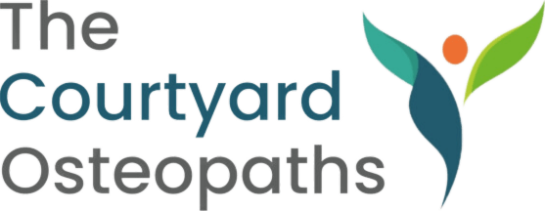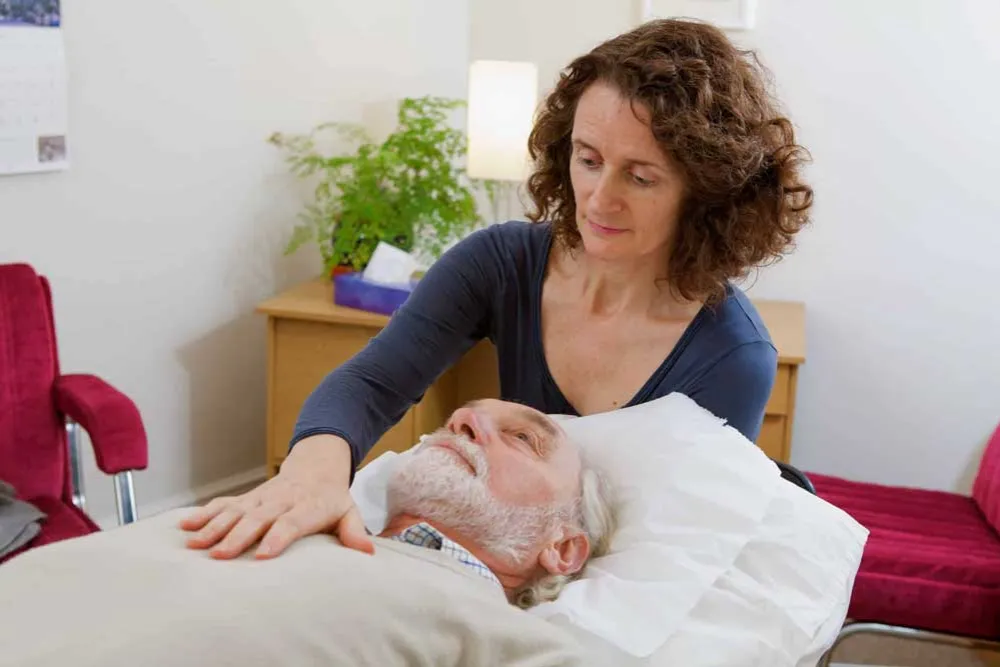Back pain relief is one of the most common reasons people visit an osteopath. If you’re experiencing pain in your back, here is some information you might find useful.
We’ve included some general advice for acute pain and ongoing discomfort as well as some back pain exercises and stretches which can help relieve your aches as well as strengthen your muscles to prevent the pain recurring:
Why not give us a call?
If you have any questions or would like to discuss how osteopathy might be able to help you, or to book an appointment, please get in touch with us on 0117 923 1138.
Red flag back pain symtoms
Before we move on to general advice, you should seek immediate medical help if your back pain is accompanied by symptoms like:
- Fever
- Unexplained weight loss
- Swelling in the back
- Pain in other parts of your body
- Loss of bladder or bowel control
- Numbness around your genitals
- Pain that is worse at night
General advice for acute back pain, sprains and strains
RICE
After an injury such as a sprain or strain, you can encourage recovery by applying the following four procedures, known as RICE – Rest, Ice, Compression, and Elevation – to the affected area. This will aid recovery and prevent further injury, especially when done in the first 48 hours. It is generally better not to use heat on an injured area for 48-72 hours.
Rest
Do not use the affected area after the injury. The length of time needed to rest depends on the location and severity of the injury. During the rest period, immobilisation may also be helpful.
Ice
In order to reduce pain and slow swelling, place a cold pack or bag of frozen peas on the injured area for 10-15 minutes at a time. Never place the ice pack directly onto the skin, always use a sleeve or a thin tea towel. Repeat hourly.
Compression
Apply pressure to the area with a bandage or support if possible. As a general rule, begin wrapping the bandage towards the toes or finger and wrap with 50% overlap up the extremity toward the body. Wrap snugly throughout the injured area, but not so tight that it cuts off your circulation and causes numbness or tingling.
Elevation
Keep the injured body part propped up above heart level where possible.
Painkillers
Painkillers can mask your pain so it is important that you continue to be careful so as not to over-strain or restrain yourself.
If you have questions or excessive swelling or pain, please contact your GP, call NHS 111 or visit the NHS website for health and lifestyle advice.
General advice for stiffness and ongoing back pain
This advice is for people who are experiencing chronic, ongoing back pain and/or stiffness and includes information on:
- Balancing rest and activity
- Stiffness
- Using hot and cold packs
- Hot and cold bathing
Balancing rest and activity
If you have ongoing back pain, a combination of resting and moderate activity, such as walking or doing everyday tasks, without over-tiring yourself, will usually help recovery. Being inactive for long periods is actually bad for your back.
Stiffness
Stiffness can be relieved by applying heat or cold combined with regular stretching. Try Yoga with Adriene on YouTube e.g. Yoga for Back Pain.
As osteopaths we can give advice on stretches specific to your injury and also discover and release the underlying causes.
Using hot and cold packs
Alternating between cold and hot causes the blood vessels in the local area to constrict and dilate. This flushes out toxins that build up with muscle spasms and inflammation and reduces irritation to the local tissues.
This can be helpful for sore, stiff and painful joints and muscles. It is very safe and usually makes the area more comfortable for a few hours which means it can be helpful to do several times a day.
You will need a hot pack or hot water bottle and a cold pack or bag of frozen peas. You can buy hot and cold gel packs from us (these can be put in the freezer for about two hours before use).
It is not a good idea to place any hot or cold pack directly onto your skin, so make sure it is wrapped in a thin piece of towel.
The process takes about 15 minutes to work, so be sure to get into a comfortable position:
- Place the cold pack in a thin towel and place on the affected area for 3 minutes.
- Replace with the warm pack or hot water bottle for 3 minutes
- Replace with the cold pack for 3 minutes
- Replace with the warm pack or hot water bottle for 3 minutes
- Finish with 3 minutes of cold. This reduces the amount of fluid in the area
Remove it sooner if a rash or skin reaction develops. Cold pack application may be repeated every hour or as needed for relief of pain and/or swelling.
Heat
Heat on its own can also be useful in chronic conditions as it helps increase blood flow and decrease pain. If using a gel pack, heat per manufacturer’s instructions, or use a hot water bottle.
Wrap the hot pack or hot water bottle in a thin towel and apply to the affected area for about 15-20 minutes or every hour. Follow this with some stretching.
Do not use heat:
- If swelling is present as it can make it worse
- If you have a circulation disorder
- Until 48-72 hours after an injury, before this time heat can make it worse
- On open wounds or stitches
- Don’t use heat if you have limited sensation in the affected part of your body
Hot and cold bathing
- Fill a container, or your bath, with warm water heated to 36-42°C (98-108°F)
- Place the affected area in the water.
- Soak for 15-20 minutes. Gently bend and straighten any affected joint while in the water.
- Remove.
- Gently stretch the area.
Back pain stretches and exercises
As osteopaths we recommend keeping your back and body strong and healthy with stretches and or exercises
Back pain stretches
If you are in the middle of experiencing an episode of back pain, some gentle stretches can help ease discomfort as well as helping strengthen the muscles in your back.
Yoga with Adriene on YouTube has lots of videos covering a wide range of levels and conditions.
As osteopaths we can give advice on stretches specific to your injury and also discover and release the underlying causes.
Back pain exercises
As well as stretching, strengthening your back through exercise is one of the best ways to keep back pain at bay and can also be effective in reducing any discomfort you might be experiencing.
Low-impact, gentle exercise will help strengthen the muscles in your back without the risk of strain or sudden jolts such as swimming, yoga and Pilates.
Advice for posture, ergonomics and work stations
People visit us seeking osteopathic treatment for conditions caused by poor posture at work, especially when hunched over laptops and computer screens.
In the course of your osteopathic assessment we will focus on:
- Discovering any postural habits that may be contributing to your symptoms
- Advising you on helpful stretches or exercises
- Recommending seating positions for home or work, correct lifting techniques and ways of improving your diet
- Discussing other aspects to help aid and support your full recovery
Want to sort out your postural problems and start feeling better?
We’d be happy to answer any questions. Ask to speak to one of our friendly team to find out how osteopathy can help you.
Give us a call or make an appointment If you have any questions about back pain symptoms or relief, give us a call for a quick chat on 0117 923 1138.
What Do Other People Think

Rated 5 star by over 40+ clients

